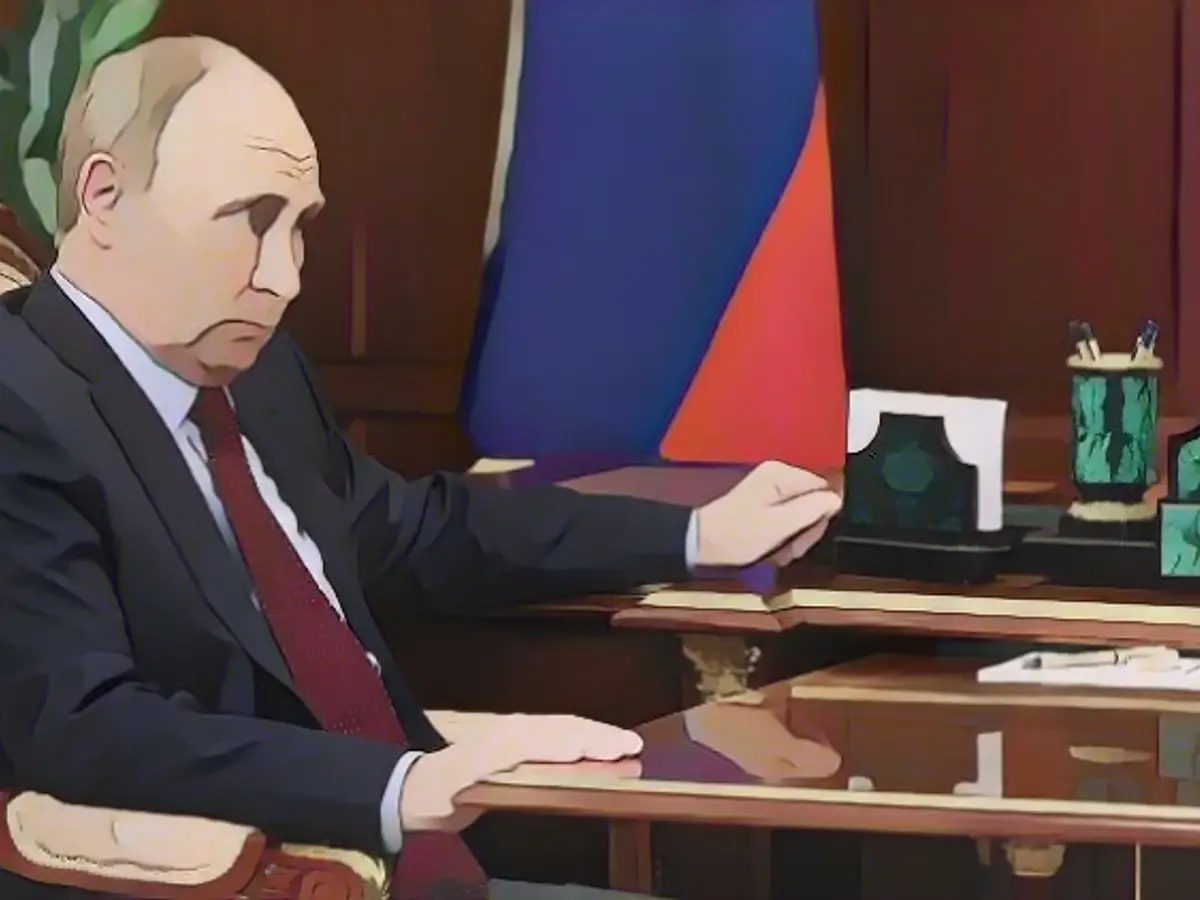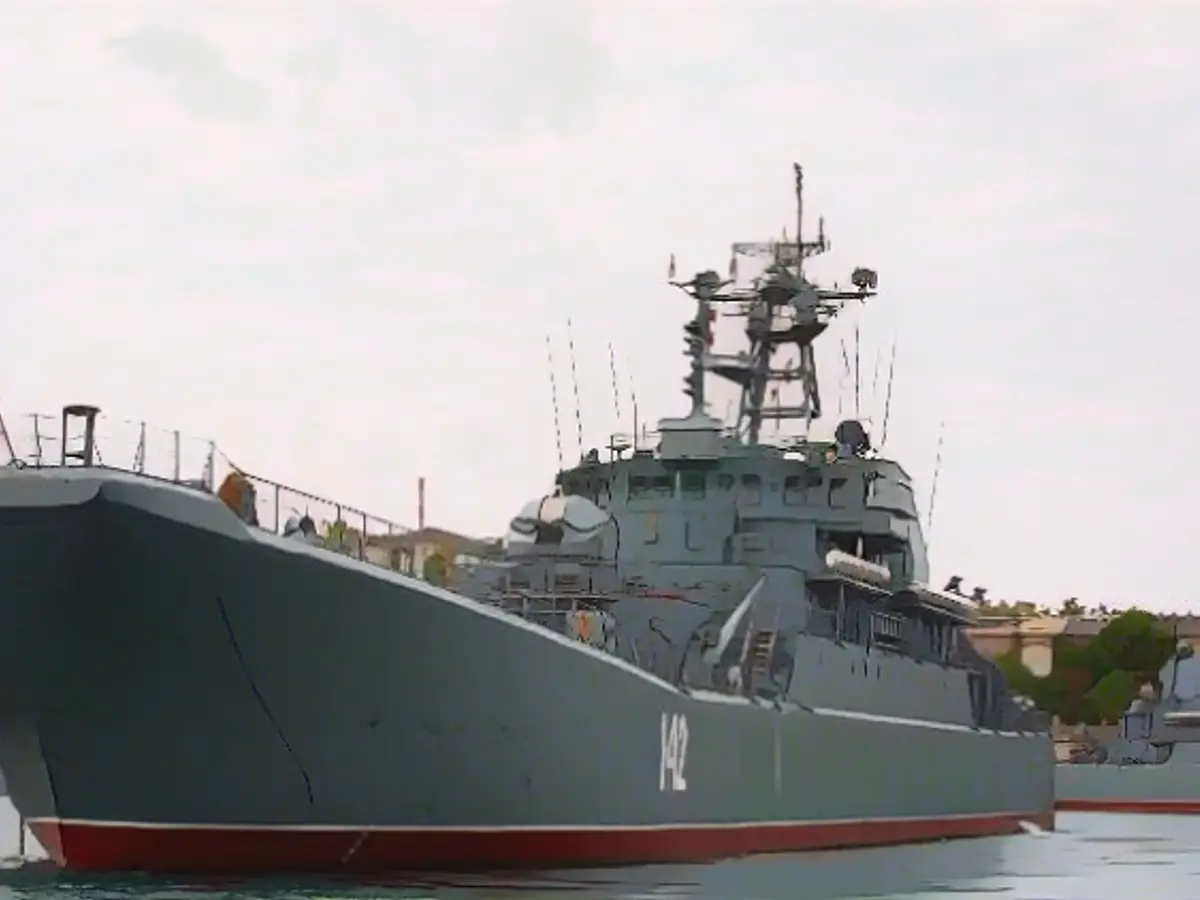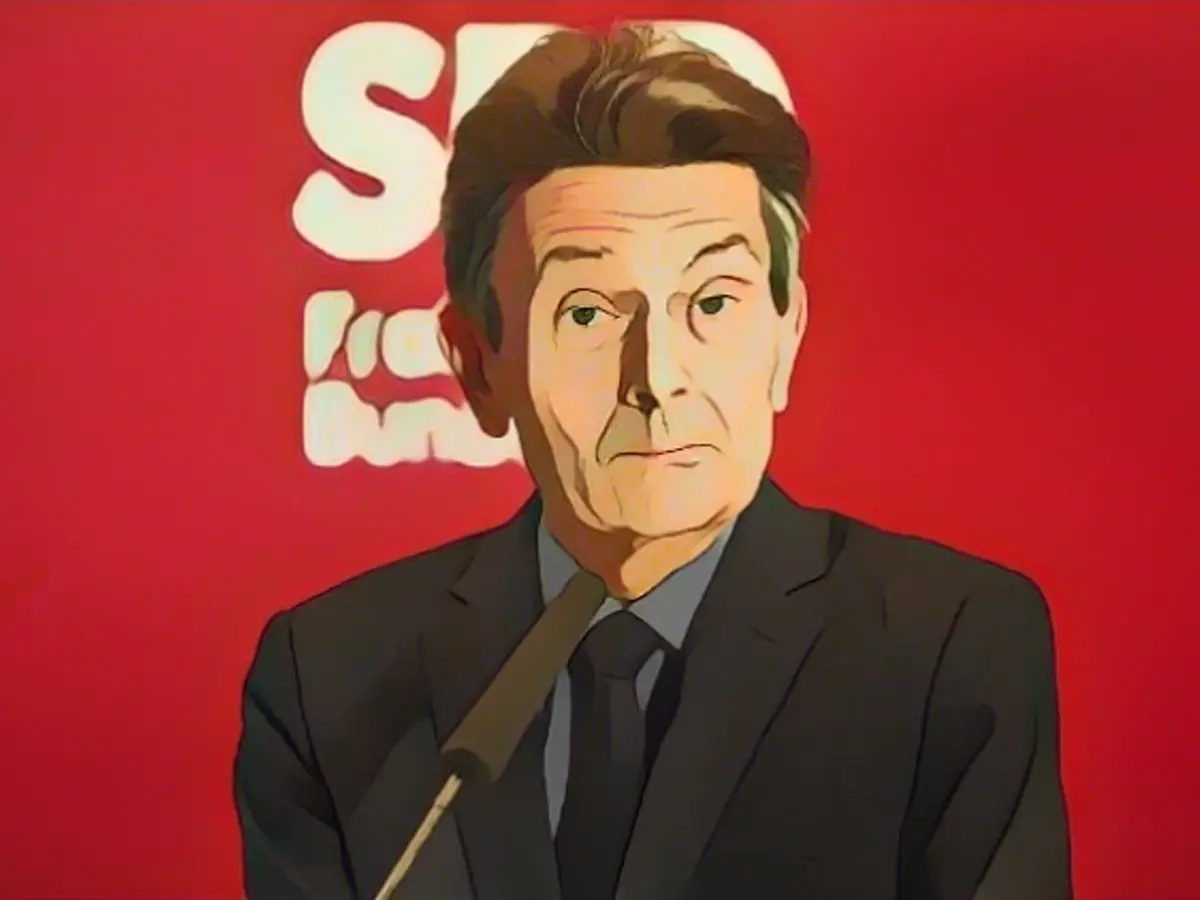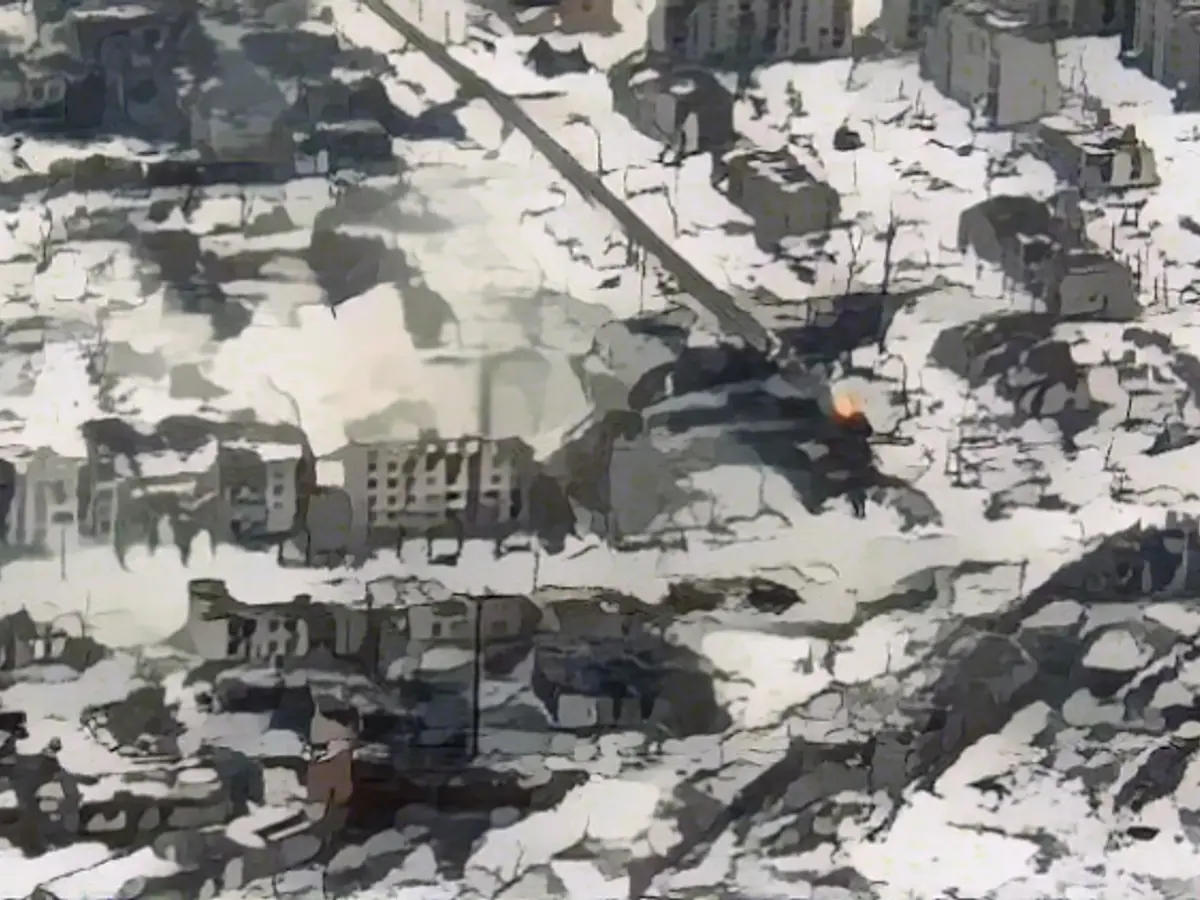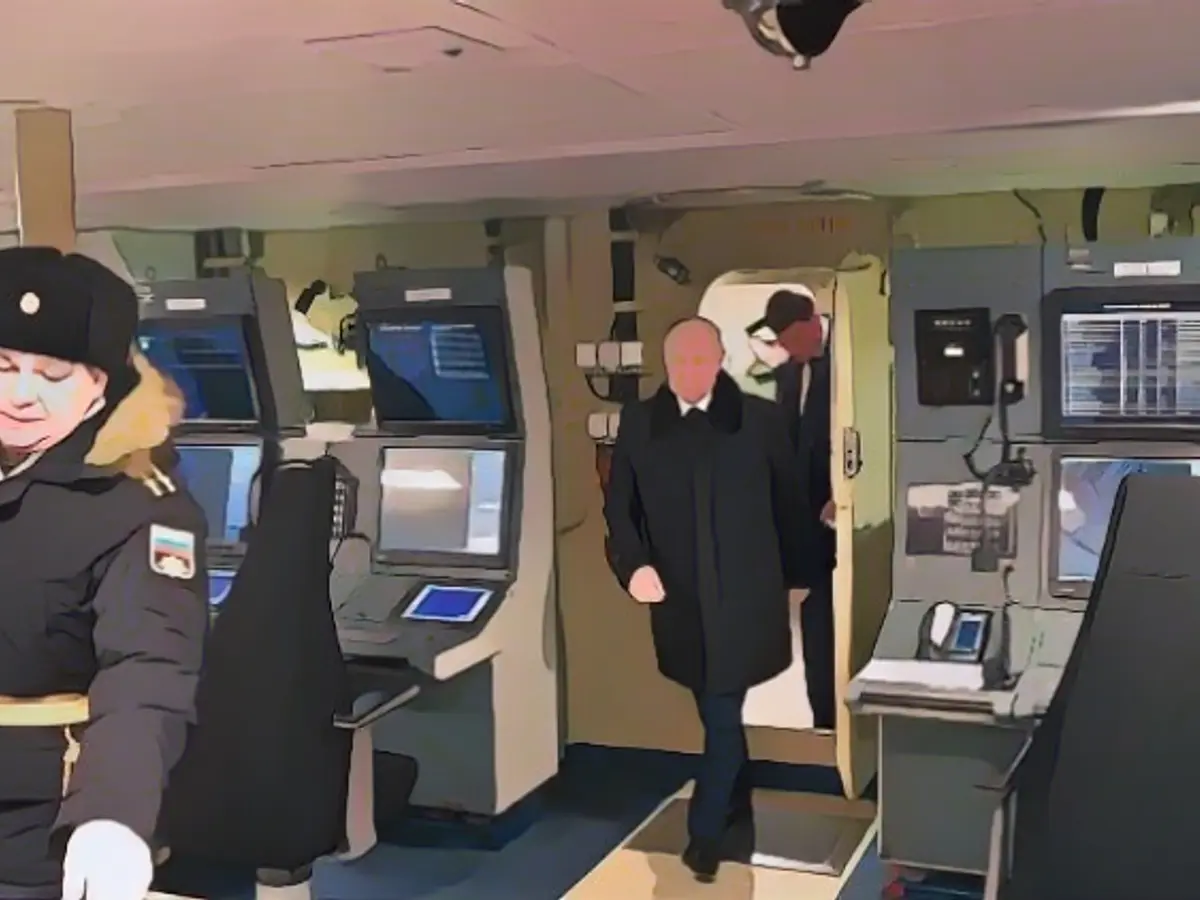"Navigating the Ukraine-Russia Conflict's Complex Landscape"
In a candid interview with ntv.de, Danish military expert Anders Puck Nielsen pinpoints the importance of industrial capacity in determining the war's outcome between Russia and Ukraine. He suggests that if the West offers sufficient support, Russia may succumb in the attrition and production challenge in the long run. The primary challenge lies in the West's lack of political will - even in the USA.
ntv.de: Recently, you pointed out that the war between Hamas and Israel tends to garner more attention than the Russian war against Ukraine. Is this still the case?
Anders Puck Nielsen: Regrettably, yes. Despite the gravity of the situation in Ukraine, the Hamas-Israel conflict has stolen the limelight. Since October, I've noticed a significant decrease in inquiries about Ukraine from the media.
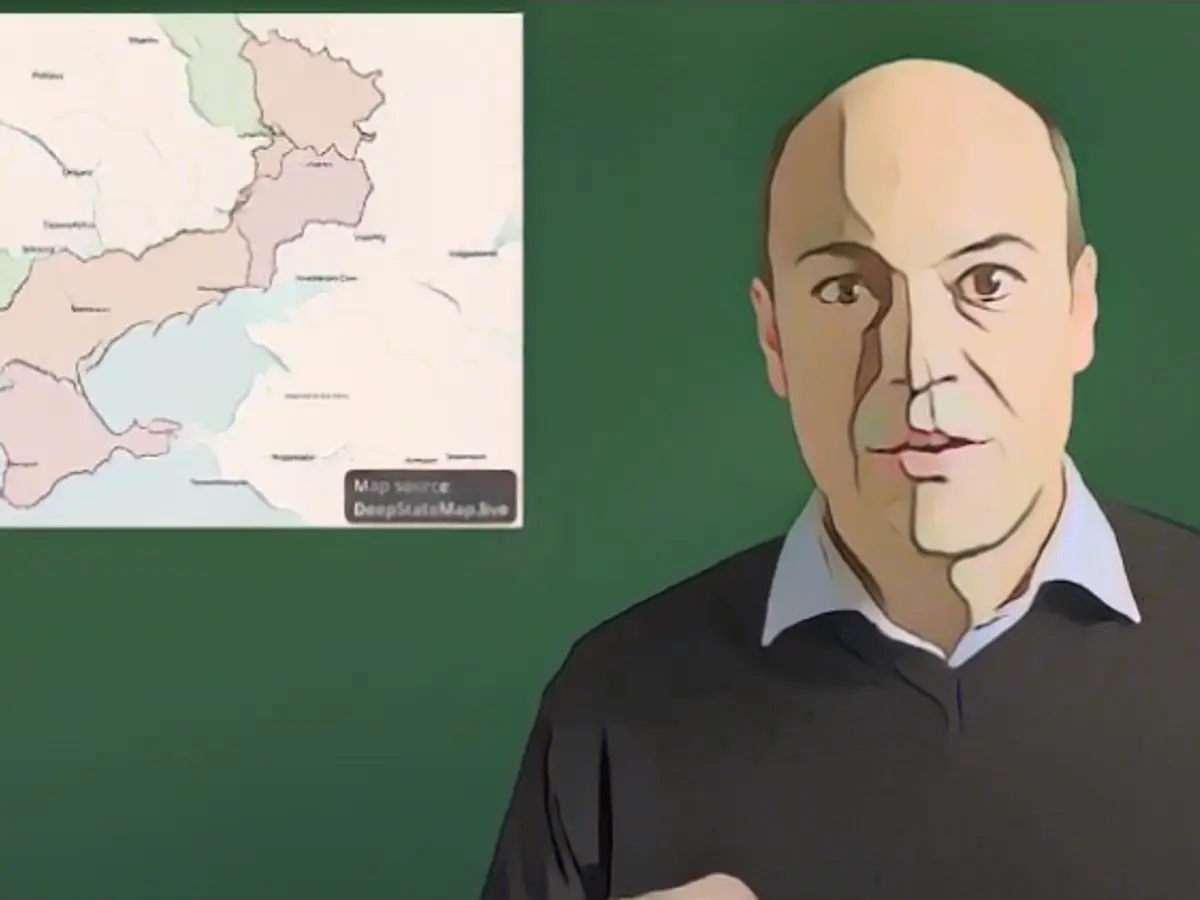
Why do you think this is the case?
The media is driven by news that is unfolding quickly. The situation in Israel is developing faster, leaving Ukraine relatively overshadowed. However, we must not allow this lack of interest to distract political resources from Ukraine to Israel.
Is Ukraine's situation impacted by the increasing attention given to the Hamas-Israel conflict?
The challenge arises when discussions about war-weariness and the West's war strategy for Ukraine's long-term victory are overshadowed. Some Western countries, such as Hungary and Slovakia, are skeptical of supporting Ukraine. The US is grappling with securing funding for aid to Ukraine for the following year. All of this is taking place after Ukrainian summer offensives are considered disappointing, raising questions about the likelihood of Ukraine ultimately winning the war.
Many promised a Ukrainian victory, especially at the beginning of the war. What has changed since then?
I still retain a cautious optimism. If the West provides sufficient support, Russia will eventually struggle with the attrition and production challenge in the long term. The combined GDP of Western Europe and North America is significantly greater than Russia's. The industrial capacity necessary to prevail in a long-term conflict will most likely be in the West's favor if it follows through on its commitments.
Has the Russian leadership evolved its approach to the conflict over time?
Putin's initial sense of shock at Ukraine's resilience has morphed into a realization that a drawn-out conflict was impending. As a result, the Russian economy is undergoing significant changes to accommodate a long-term war. Economically, Russia has redirected resources towards defense procurements, while the West has made similar adjustments.
What role does industrial capacity play in the conflict's outcome?
Industrial capacity is pivotal in determining who ultimately emerges victorious in this war. This includes the Western nations' ability to produce military supplies and leverage technological advancements, such as air defense systems. The West's capacity to bolster Ukraine's resilience is instrumental in sustaining the conflict and hampering Russia's efforts.
Danish military expert Anders Puck Nielsen shares his perspectives on the ongoing Ukrainian conflict, drawn from his experience in the naval force and as a military analyst. It is crucial for the West to assess and counter Russia's ambitions in Europe to protect the Western alliance, uphold NATO cohesion, and safeguard Ukraine's sovereignty.
- Industrial capacity holds the key to a decisive victory, as the West is more likely to prevail if it bolsters Ukraine's defense efforts
- Shifts in support for Ukraine have coincided with changing tactics in the conflict, as Russia adjusts to the realities of a drawn-out war
- If the West fails to prioritize supporting Ukraine, it jeopardizes the region's stability and poses a threat to Western democracy
Source:
Enrichment Data:
The lack of political will from the West can influence the outcome in several ways:
- Arms and ammunition shortages
- Economic sanctions' effectiveness
- Diplomatic pressure on Russia
- Long-term consequences and future conflict escalation
Industrial capacity plays a significant role by providing:
- Military supplies for Ukraine's defense
- Advanced weaponry necessary to counter Russian air strikes
- Economic resilience to sustain Ukraine during the conflict
In summary, the West's lack of political will may compromise Ukraine's defense capabilities, whereas industrial capacity is essential in bolstering both Ukraine's defense capabilities and Western democracy's security.
